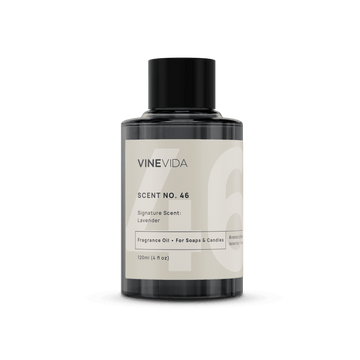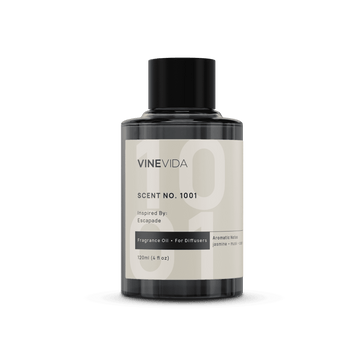Imagine the scene. Cypress trees against a southern Italian landscape. Olive trees against an azure blue sky. The occasional cream stone building punctuates the Calabrian hills. The air is fresh and bright with the fragrance of bergamots, strange inedible green-colored oranges that are grown to make Earl Gray tea. A vital ingredient for the fragrance industry, interestingly, bergamot is usually tested with other essential oils. Together with oils like lavender and cedarwood, bergamot has shown promising results working with anxiety and reducing pain. It has anti-depressive elements and has a healthy effect on blood pressure and heart rate. (Han, 2017). Having astringent properties, it is wonderful for greasy skin. It is energetically cooling so is wonderful for hot flashes or fevers. Since bergamot essential oil can irritate the skin when exposed to sunlight, we’ll also discuss safety in this article.
Bergamot Essential Oils Benefits for Emotional Balance
Most important is its effects on mood. Its light brightness seems to be full of sunshine and hope.
One of the areas aromatherapy is being best exploited is in care homes for dementia patients. The confusion and memory aspects of the disease make up a relatively small part of a much darker problem. Patients become aggressive and disturbed. Their frustration can make them violent and abusive. Often, the only solution available to patients when they reach this is pharmaceutical sedatives. However benzodiazepines, which are the most effective drug choice, can often make them like zombies. People lose the ability to make themselves understood, which can be particularly problematic if they are in pain. This is compounded when medications make communication even harder.
Aromatherapy is seen as one of the most successful technologies available for helping to calm patients down at this time. Bergamot is anxiolytic (reduces anxiety) without being sedative. (Scuteri, 2019). Beautifully, I love that the research for this trial came from a joint incentive between Japan and the University of Calabria, the county where so many bergamots grow.
Measuring Bergamot Essential Oil Benefits on Mood
Mood, of course, is subjective. We’ve all had days where we had to mask our true feelings and just get on with life. Likewise, people might say they feel calmer and more positive but are they, actually? Does the body tell the same story?
Cortisol Release Factor (CRF1) is described as the Molecule of Negative Expectation. When we feel anxious, melancholy or pessimistic, CRF1 triggers cortisol to be released into the bloodstream to prepare the body for Fight and Flight Syndrome. This changes many biological processes, prioritizing ones that help us to run away faster and jump up trees higher, to get away from saber tooth tigers! The body steals many resources to fuel the muscles with glycogen. So, if someone is under stress for a period of time, regardless of the smile on their face, you will still find cortisol in their blood serum and saliva.
In a 2015 trial, 41 healthy females were given three experimental situations to measure their effects on serum cortisol. Cortisol is released when the body is under stress or someone is or experiencing negative emotions. The first group were simply told to rest. The second was also asked to rest but they were also exposed to plain water vapors. The third group had to rest, to breathe the water vapors but their steam had bergamot essential oil to it When tested after 10 minutes, the serum cortisol had diminished significantly in the bergamot group, suggesting that any negative feelings had passed. (Watanabe, 2015)
More Bergamot Essential Oil Benefits
So, when something bad seems to be looming, apart from alterations in cortisol, what else happens? How about your heart beating faster and blood pressure changing?
A 2011 trial tested the effects of using lavender and bergamot on 40 volunteers who were asked to massage the blend of oil onto their abdomens. When analyzed, it was found that the blend had slowed their pulse rates, and reduced both their systolic and diastolic blood pressure, compared with the placebo. Participants were then asked to rate their emotional condition with reference to mood, relaxation, vigor, calmness, attentiveness and alertness to assess their subjective behavioral arousal. Overwhelmingly, the subjects described themselves as feeling “more calm” and “more relaxed.” (Hongratanaworakit, 2011)
On Your A Game - Thanks to Bergamot Essential Oil Benefits
It’s one of the effective treatments aromatherapists have for lifting melancholy. It is a strange oil because it is relaxing and uplifting, without being sedative. That’s a rare combination, because most relaxing oils also make you a little drowsy. So, this energetic imprint naturally has great appeal for people who work in the care sector, for example. There are countless benefits to them relaxing in jobs that are so stressful, but it is imperative they still remain on their game.
Robbi Zeck characterizes the nature of the oil, in her book The Blossoming Heart. She describes how it works on the “encouraged - saddened” axis. The uplifting nature of the oil is perhaps best seen in a 2017 study when patients were asked to inhale bergamot essential oil for a few minutes whilst they were waiting to see the doctor in the mental health ward. The researcher comments that not only did the subjects report feeling better, they found that people were also experimenting with the oil outside of the control periods, leading them to think that even just a small time inhaling the oil might increase their recruitment numbers for taking part in clinical trials. (Han, 2017)
Bergamot Essential Oil Benefits For Emotions That Are Stuck
In The Fragrant Mind, Valerie Ann Worwood suggests it for apathy, bitterness, emptiness and despondency.
She describes it as bringing good cheer, but also for helping you to concentrate, to be more motivated and feel more balanced.
I always heed Vivienne Lunny’s advice when I am embroiled in some kind of disagreement when she says that bergamot essential oil can see both sides of any issue, which enables one to redress feelings.
Grandmother of aromatherapy, Mme Arcier (1990) relates how it is excellent for fevers, and indeed that does echo traditional Etruscan medicine. She also suggests it for hemorrhoid.
Bergamot Essential oil Benefits for Digestion
Gabriel Mojay describes how bergamot essential oil smoothes the flow of qi-energy, and especially liver qi. This might be disturbed by overeating, or by nervous energy. The result can be indigestion, colic, or a bloated stomach. Again, bergamot essential oil might work best if it were used in synergy with chamomile, dill or cardamom essential oils that also have pacifying effects in these areas.
He gives a beautiful description of emotions we feel when qi is blocked. Frustration, tension, resentment, and how bergamot seems to breeze through the psyche allowing these to simply drift away. To me, it always feels like you should imagine you are on that hillside close to the groves, and just throw open the windows for bergamot to let the sunshine in and shoo the darkness out!
No-one Seems to Talk about Bergamot Essential Oil Benefits For Water Infections
And I don’t know why!
It’s equally as good as geranium and cypress, and it’s always been my go to oil of choice.
Now, I have to say, I’m not a big advocate of using essential oils internally, but I have seen bergamot stop bleeding cystitis in its tracks. One drop of the oil in a teaspoon of vodka does not taste good at all, but in an emergency situation, it is fabulous. That said, I would always recommend trying to treat it topically first.
Finally, it is a fabulous oil for calming down greasy skin and for bringing a new bloom to the complexion. Just as it brightens the psyche, so it brings luminescence to the skin. Clearly though, this takes a bit of nous, so we’ll address some tips and techniques in a separate post.
Understanding The Safety of Bergamot Essential Oil
The oil can act like it already has so much sunshine in the bottle, and that any more might be too much. If you use bergamot on the skin, (even undiluted into a carrier) then go out in the sun (or on a sunbed) too quickly, you will burn, or even develop a rash. It is the furanocoumarins in the oil that cause the phototoxicity. In the 1980’s there used to be a popular sun oil that made your skin go deep deep brown, called Bergasol. The beauty industry utilized the effects of irritating sunburn, before it was recognised how harmful that can be.
It is possible to buy a furanocoumarin free (FCF) bergamot oil, but in my opinion, that is not as effective if you hope to use the oil to improve mood. It seems not to have that same effect of the warm breeze blowing the cobwebs from the spirit. To stress though, that is not proven and I am sure many people might disagree with that distinction..
It is possible to avoid issues from phototoxicity, using the standard oil, by keeping dilutions low. (Or only using it in the evening, of course.)
A maximum dilution of 0.4% will protect the skin.
In layman’s terms that means we can have just under half a drop of essential oil in a teaspoon of carrier. So, what I do is play it really safe. One drop in three teaspoons, or even a tablespoon of carrier oil.
It’s not recommended that you use it on children under the age of two years. Personally, I’d be worried about using it on under tens, to be honest because it can be so unpredictable.
Because cats lack a certain enzyme to help them metabolize citrus essential oils, beware of diffusing this oil around them. Certainly don’t use it topically on them.
Replace your bergamot essential oil regularly. Being rich in a chemical group called monoterpenes means it will oxidize fast. The same applies to all citrus oils. If you use oil oils they can be very spiteful and cause skin sensitivity.
Finally, because of bergamot’s potential to degrade, you need to consider how fast you’re going to use your treatment. Since it is high in limonene, the International Fragrance Regulations Association recommends you add a preservative if you don’t plan to use it immediately. I use 0.5% tocopherol when needed, but to be safe, I usually create my treatments as I need them. I’ve added some notes about using bergamot for skin care here.














